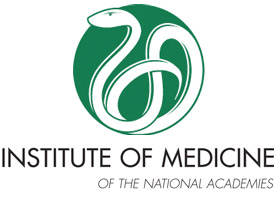‘’…there is an unquestionable imperative to assess and optimize the effectiveness of the public’s investment in GME (graduate medical education).”
So says the Institute of Medicine (IOM) in its new report Graduate Medical Education That Meets the Nation’s Health Needs.
 The IOM also calls for “significant changes to GME financing and governance to address current deficiencies and better shape the physician workforce for the future.”
The IOM also calls for “significant changes to GME financing and governance to address current deficiencies and better shape the physician workforce for the future.”
The report notes that government today, mostly through Medicare, plays the primary role in financing graduate medical education. It observes that while there is a common perception that the nation faces a shortage of physicians, simply increasing the number of residency slots that Medicare supports – a limit set in 1997 – without addressing geographic and specialty distribution issues will not solve the problem.
In the report, the IOM proposes six goals for improving GME financing.
- Encourage production of a physician workforce better prepared to work in, help lead, and continually improve an evolving health care delivery system that can provide better individual care, better population health, and lower cost.
- Encourage innovation in the structures, locations, and designs of GME programs to better achieve Goal 1.
- Provide transparency and accountability of GME programs, with respect to the stewardship of public funding and the achievement of GME goals.
- Clarify and strengthen public policy planning and oversight of GME with respect to the use of public funds and the achievement of goals for the investment of those funds.
- Ensure rational, efficient, and effective use of public funds for GME in order to maximize the value of this public investment.
- Mitigate unwanted and unintended negative effects of planned transitions in GME funding methods.
To fulfill these goals, the report offers three specific recommendations:
- Investing strategically: Maintain Medicare GME funding at its current level, but modernize payment methods to reward performance, ensure accountability, and incentivize innovation in the content and financing of GME. The current Medicare GME payment system should be phased out.
- Building an infrastructure to facilitate strategic investment: Establish a two-part governance infrastructure for federal GME financing. A GME Policy Council in the Office of the Secretary of the Department of Health and Human Services should oversee policy development and decision making. A GME Center within the Centers for Medicare & Medicaid Services should function as an operations center with the capacity to administer payment reforms and manage demonstrations of new payment models.
- Establishing a two-part Medicare GME fund: Allocate Medicare GME funds to two distinct subsidiary funds—a GME Operational Fund to finance ongoing residency training activities and a Transformation Fund to finance development of new programs, infrastructure, performance methods, payment demonstrations, and other priorities identified by the GME Policy Council.
Graduate medical education is an important issue for the Pennsylvania safety-net hospitals that also are teaching hospitals. The state’s Medicaid program is an important source of medical education funding for these hospitals as well.
To learn more about why the study was undertaken, what problems it sought to address, what the IOM learned, and what it proposed, follow this link to the IOM’s web site and the complete report as well as a report summary.